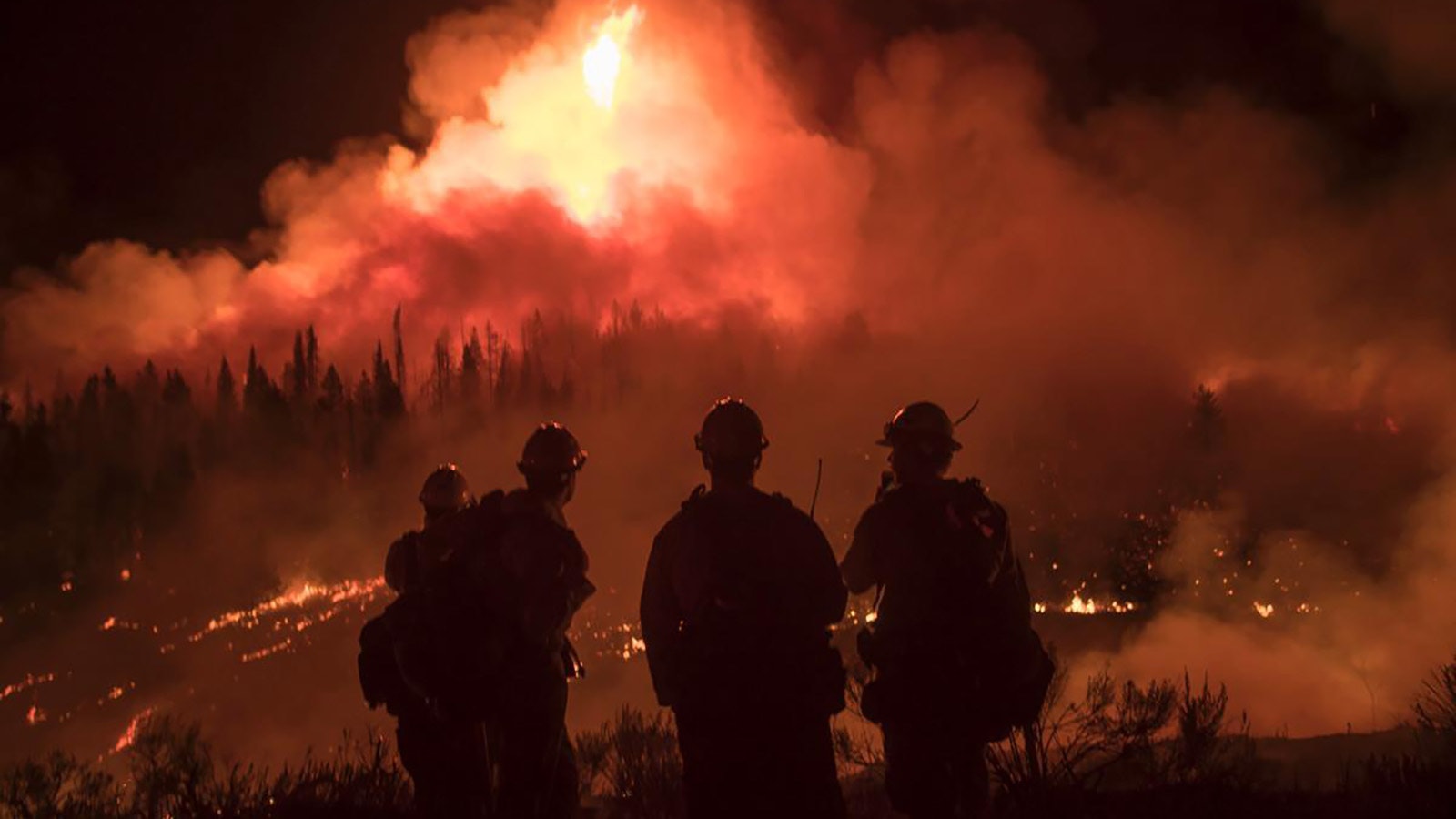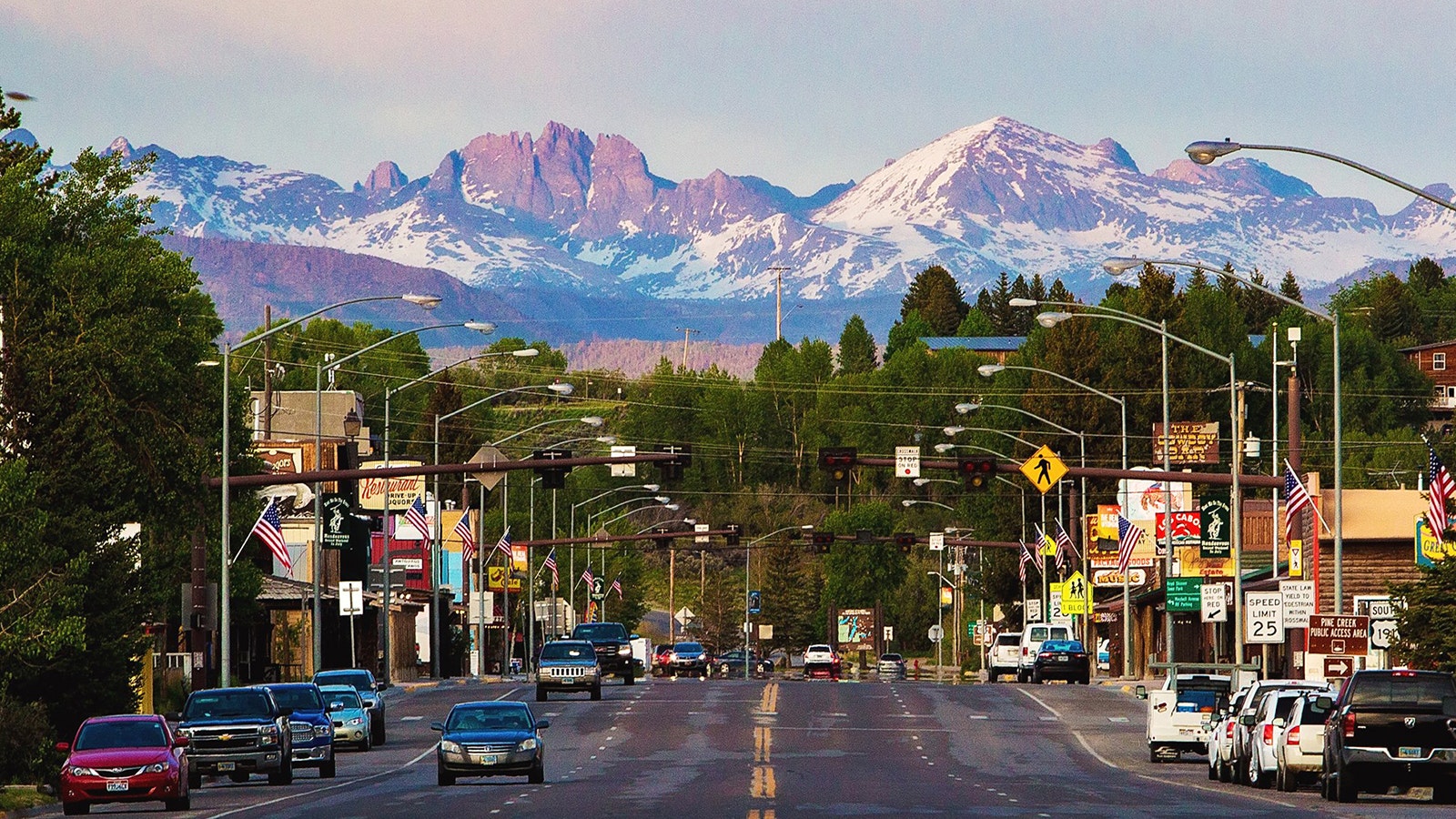Dozens of Wyomingites suing the federal government for letting the 2018 Roosevelt Fire burn and destroy their homes are waiting to see if the U.S. Supreme Court will take on a similar case government, which the government won.
Thirty-two Wyoming residents and organizations filed a lawsuit, Accurso v. United States, in September, saying the U.S. Forest Service knew about the manmade Roosevelt Fire in late summer 2018, but let the fire sweep through the Hoback ranch area south of Jackson and destroy numerous people’s homes and property.
They’re asking a Wyoming federal judge to pause their lawsuit for now while they watch to see if the U.S. Supreme Court will take on a companion case, Knezovich v. United States.
Filed Tuesday, the Accurso plaintiffs’ request for stay asks the court to pause the case until March 4, when a petition for the Supreme Court’s review in the Knezovich case is due.
The Knezovich case dates back to 2021, when fire-scathed hunters and Hoback Ranch-area landowners sued the federal government. Similar to those in the Accurso case, the plaintiffs allege that the U.S. Forest Service made a deliberate decision to use the manmade Roosevelt fire as “resource management” rather than fighting it, and that the decision was outside the realm of discretion government entities have.
No Rush
Steven Knezovich and his son Dakota, two of the eight plaintiffs in the lawsuit, were out hunting when the Roosevelt fire struck Sept. 15, 2018.
They caught a “very good look” at it near the head of the Hoback River in the Wyoming Range and called it in to the authorities, their complaint says. But all the agencies they called acted like they already knew about the fire and thanked them for calling.
No Forest Service officer warned the hunters that day that they should get out of the area or that the agents were letting the fire burn, the complaint says.
The Knezovich family assumed authorities were fighting the fire. They stayed in the region for another day and offered their hunting camp as a base of operations for any firefighters, the document says.
Exploding Trees
By Sept. 16, 2018, a Sunday, the hunters decided to head home. They were on foot and on horseback.
This time forest rangers reportedly told the hunters that the Forest Service was not fighting the fire, but was letting it burn. But the hunters still had “several hours to make it back (to) where they had parked their trucks and stock trailers at the trailhead,” the rangers said, according to the lawsuit.
“The rangers expressed no sense of urgency,” the complaint adds.
Steven Knezovich set off first since he was the only one on foot. He met one of the rangers a second time. This time the ranger reportedly said the fire was moving fast and the Knezovich party had a “short window” to escape.
They nearly missed that window.
The fire surrounded Steven and Dakota. Burning and exploding trees all around them radiated intense heat. The blasts burned the hunters’ torsos, arms and faces, the complaint says.
The lawsuit alleges that they both were convinced that they were about to die.
“They still suffer from burn injuries and will likely suffer from them for life,” says the document, adding that the men also have mental and emotional distress from facing death in the flames.
But They Lost
Wyoming U.S. District Court Judge Alan B. Johnson dismissed the Knezovich case April 13, 2022, at the government’s request.
The U.S. government at first argued that Johnson didn’t have subject-matter jurisdiction — that is, a legal mechanism — to hear the claims in this case. But noting that this argument was bound up with the merits of the plaintiffs’ arguments as well, Johnson converted the government’s motion to a motion for summary judgment, which is essentially a request to dismiss a case for having no legal grounds at all.
Johnson reasoned in his dismissal that the Knezovich family and the other plaintiffs failed to show how the government acted outside its law-given discretion.
The law gives government entities some discretion to make decisions, which can protect agencies from lawsuits.
These Are Guidelines
The plaintiffs had pointed to firefighting policy language in claiming that the Forest Service was barred from using a manmade fire for “resource management.”
Johnson countered, noting that the rule in question was only guidance, and that it also included discretion-granting language.
He also said the plaintiffs had provided “little to no evidence the Forest Service pursued resource benefits with the Roosevelt Fire.
“Aside from one news article, all other information, including the database which outlines the Forest Service’s official actions, points to the Forest Service not considering resource benefits in their decisions regarding the Roosevelt Fire,” the judge added.
It's Their Decision
The plaintiffs asked for the chance to probe for more evidence to support their case.
Johnson denied that request, saying it would not have made a difference, because the plaintiffs didn’t point to any legal mechanisms that would have put the government’s management decisions beyond its discretion anyway.
“Their assertion that the Forest Service had to respond with full (fire) suppression and had many available resources goes against information provided by Plaintiffs themselves,” wrote the judge.
Failure To Warn
Johnson turned next to the plaintiffs’ claim that the agency failed to warn people about the fire.
The government argued that it also had discretion over the extent to which it should have warned people about this fire.
Johnson agreed. He pointed to the Forest Service’s press release and personnel contact with people in the area, and concluded that the agency did issue warnings that were adequate under its discretionary authority.
Here Come Three More Judges
The Knezovich plaintiffs appealed to the 10th Circuit Court of Appeals after their loss.
There, Judges Timothy Tymkovich, Nancy Moritz and Veronica Rossman heard the arguments and sided with Johnson on Sept. 15 of this year.
“The judgement of that court is affirmed,” reads the ruling.
Then Dec. 4, the judges denied the plaintiffs’ request for a re-hearing in the case.
Now poised to appeal to the Supreme Court if the plaintiffs choose, the Knezovich case will be “controlling” for the Accurso case once it’s decided.
If the Supreme Court does not hear the Knezovich case, the plaintiffs in the Accurso case will agree to have their own case dismissed, says their Tuesday filing.
Clair McFarland can be reached at clair@cowboystatedaily.com.





